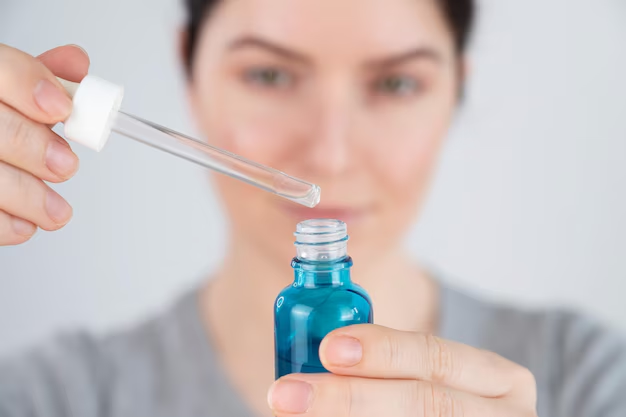Can Hyaluronic Acid Be a Soothing Solution for Rosacea?
Rosacea is a chronic skin condition afflicting millions worldwide, characterized by persistent facial redness, visible blood vessels, and sometimes acne-like bumps. With varying triggers and symptoms, finding the right skincare routine can feel elusive for those seeking relief. Amid the sea of lotions and serums, Hyaluronic Acid (HA) has emerged as a potential savior for sensitive skin. But does it truly benefit those living with rosacea?
Understanding Rosacea: More than Just Redness
What is Rosacea?
Rosacea affects an estimated 16 million Americans, though many remain undiagnosed. This condition typically manifests on the central face, causing visible redness, swelling, and skin sensitivity. While its precise cause remains unknown, research suggests a combination of genetic, environmental, and vascular factors.
Symptoms and Triggers
Rosacea varies in severity but commonly presents with:
- Persistent redness or flushed appearance
- Visible blood vessels (telangiectasia)
- Bumps and pimples resembling acne
- Burning or stinging sensations
Common triggers include sun exposure, stress, hot beverages, spicy foods, and alcohol. Individuals often experience flare-ups, with symptoms intensifying before subsiding temporarily.
Hyaluronic Acid: A Moisture Magnet
What is Hyaluronic Acid?
Hyaluronic Acid is a naturally occurring substance in the body, especially abundant in the skin, eyes, and connective tissue. Its primary function is hydration, as it has an exceptional ability to retain moisture—a single molecule can hold up to 1,000 times its weight in water.
How Does HA Work?
Hyaluronic Acid draws moisture into the skin, maintaining a healthy, plump, and elastic appearance. This makes it a favored ingredient in many skincare products, from serums to moisturizers. It is appreciated for being lightweight and non-comedogenic, meaning it does not clog pores.
The Potential Benefits of Hyaluronic Acid for Rosacea
Moisturizing Without Irritation
For those with rosacea, the skin's barrier is compromised, making it susceptible to irritation and dehydration. Hyaluronic Acid's hydrating properties can combat these issues by enhancing moisture retention without causing additional irritation.
Calming and Soothing the Skin
Many rosacea sufferers find relief with HA, thanks to its soothing nature. It helps reduce inflammation and redness, offering comfort to sensitive skin.
Improving Skin Texture and Resilience
Regular use of Hyaluronic Acid can improve overall skin texture, tone, and resilience. By fortifying the skin's barrier, it may reduce the frequency of flare-ups and enhance skin health.
Is Hyaluronic Acid a Magic Bullet for Rosacea?
Importance of a Personalized Skincare Regimen
While Hyaluronic Acid is beneficial for many, it is not a standalone treatment for rosacea. A tailored skincare regimen, often including sun protection and gentle cleansing, is vital. Consulting a dermatologist is recommended for personalized guidance.
Compatibility with Other Ingredients
Hyaluronic Acid's compatibility with other skincare ingredients is noteworthy. It pairs well with:
- Niacinamide: Known for reducing redness and inflammation
- Ceramides: Improve skin barrier function and moisture retention
- Azelaic Acid: Targeting redness and acne-like symptoms
Avoiding Potential Irritants
When selecting products, avoid those containing alcohol, witch hazel, or fragrances. Such additives may exacerbate rosacea symptoms, counteracting HA's benefits.
Integrating Hyaluronic Acid into Your Skincare Routine
Finding the Right Product
Hyaluronic Acid is available in various forms, from serums to creams. When choosing, consider:
- Concentration: A higher concentration may not always be better; it's about balance.
- Formulation: Opt for products free of potential irritants.
- Brand Reputation: Established brands often undergo rigorous testing for efficacy and safety.
How to Apply for Best Results
For optimal benefits, apply Hyaluronic Acid to freshly cleansed, damp skin. Follow with a moisturizer to lock in hydration. Consistent morning and evening use can yield visible improvements over time.
Real-Life Feedback: Rosacea and Hyaluronic Acid
User Testimonials
Many individuals with rosacea report positive experiences with Hyaluronic Acid. They praise its lightweight feel, non-greasy finish, and hydration benefits. While not a miracle cure, it often plays a supportive role in managing their condition.
The Scientific Perspective
Research highlights HA's efficacy in improving skin hydration and barrier function. While specific studies on rosacea are limited, its general benefits for sensitive skin are well-documented, making it a viable option for many.
Beyond Hyaluronic Acid: Complementary Skincare Strategies
Diet and Lifestyle Adjustments
Managing rosacea extends beyond skincare products. Consider the following:
- Diet: Monitor foods and drinks that trigger flare-ups.
- Stress Management: Incorporate relaxation techniques into your routine.
- Sun Protection: Use sunscreen daily to protect sensitive skin.
Professional Treatments
Depending on severity, professional interventions like laser therapy or prescription medications, such as antibiotics, might be recommended by a healthcare provider.
Final Insights
Hyaluronic Acid can be a compelling component of a rosacea-friendly skincare routine, offering moisture and soothing benefits. Nonetheless, achieving optimal skin health involves a comprehensive approach that considers personal triggers and lifestyle factors. Remember to consult with a dermatologist to tailor treatments to your unique needs.
Key Takeaways
- 🌟 Hyaluronic Acid provides effective hydration, benefiting rosacea-prone skin by enhancing moisture retention.
- 🧴 Gentle formulations without irritants are crucial when selecting skincare for rosacea.
- 🌞 Always incorporate sun protection into your routine.
- 🍽️ Address potential dietary triggers and incorporate stress reduction techniques.
- 🩺 Consider professional guidance and treatments if symptoms persist or worsen.
By integrating Hyaluronic Acid sensibly into a supportive skincare routine, many individuals with rosacea find relief and improved skin health, paving the way for a clearer and more comfortable complexion.

